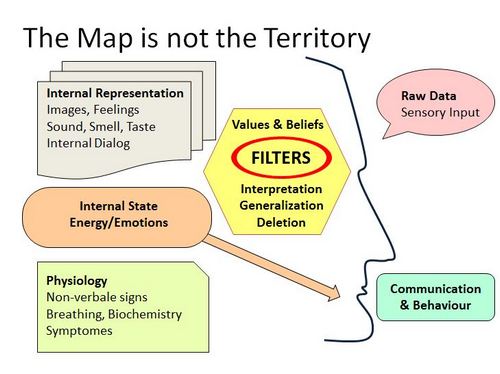Why most people rather use a wrong map instead of non at all.
”My Grandfather smoked 40 cigarettes a day for his whole life, and he lived to be 98 years. Smoking cannot be that bad”. ”My uncle never locks his doors, not even when going on a trip. He never was burgled”. Such words are usually spoken to prove something – and their source is a phenomenon called Availability Bias.
The trap is, that our map of the world tends to be biased by how easy we can come up with examples of our belief. This is of course ridiculous, because the reality is no different regardless of which scenarios we can imagine most easily.
Due to The Availability Bias we walk through life with a biased map of the world, which distorts our internal risk figures. So we overestimate our risk of being subjected to an airplanecrash and we underestimate our risk of acquiring a life style diseases. Incidents, which are spectacular and are causing news headlines, are generally anticipated as more likely, whereas incidents, which are less visible or even silent in the public eye are also considered less likely by individuals. Our brain is much more responsive to dramatic events, which will prompt it to create more and deeper associations and therefore we better remember anything, which is more loud and out of the ordinary. In NLP terms we call this Anchoring or conditioning.
Further, this anchoring process is reinforced, if something is repeated often enough. So the memory becomes stronger and we become even more convinced, although the message or information does not even have to be true. It must just be repeated often enough, and very likely, it will build a nest in your brain. Another word for this biased process is ”Brainwash”, where one particular view takes presidence over any other.
There are enough examples: TV commercials, advertising, political campaigns, news stories, documentaries. Again and again we are subjected to information, where the validity of the data is difficult to verify, if we even bother. Most of the time we have the TV running in the background and thus are not even consciously aware of what is being fed to our brain, while we are busy doing other things. But your unconscious mind is usually very eager to learn, and thus it absorbs data without any kind of source critical mode in place.
The availability of data or lack of it is constantly influencing your decisions. We are prone to make decisions on the available data, not being cautious whether the available data are the most relevant or important at all. Again and again I encourage my clients and course participants to be more objectively aware of the rawdata. Because, if the quality or the relevance of the data is false or falsified, both their decision, and the chosen course of action is wrong and can even be detrimental.
It is like being in one city without a map, but finding a map of another city in your pocket. Would you rather use a wrong map instead of no map at all? Sorry if this example is obvious, it still is analogous though.
